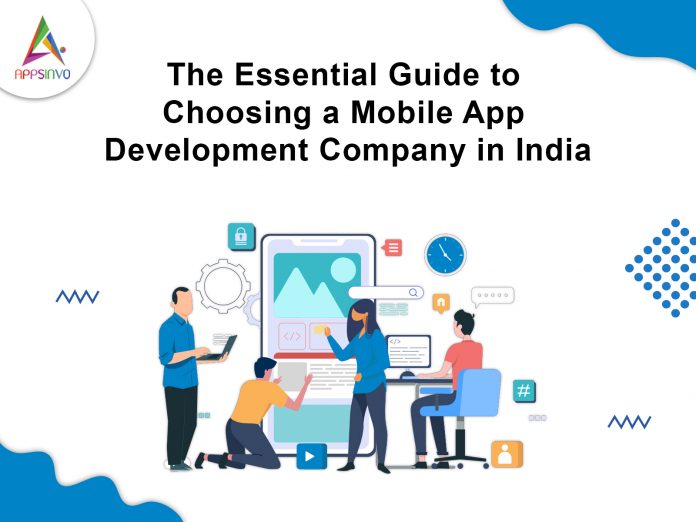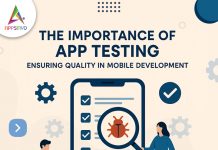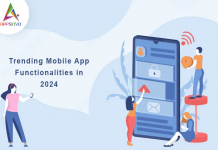Mobile applications are now one of the main focuses of business initiatives, which are used to attract customers’ attention and generate income. As the use of mobile devices continues to expand, a lot of organizations want to work with mobile application developers, especially in India, as it has a strong ICT infrastructure and senior talent resources pool. The rationale for putting together this guide is the purpose of enabling users to understand the procedure of choosing the best mobile app development company in India.
1. Define Your App Requirements
Before beginning your search, clearly define your app’s goals, features, and target audience. Consider this:
Purpose: What problem will your app solve?
Platform: Will it be iOS, Android, or both?
Features: What core features are required for your app?
Budget: What is your development budget?
A well-defined requirement is the basis for effective communication with potential development partners.
2. Research Potential Companies
Once you’ve determined your requirements, start looking into mobile app development companies in India. Use the methods listed below:
Online Directories: Platforms like Clutch, GoodFirms, and Upwork list reputable companies with user reviews.
Referrals: Ask colleagues or industry peers for recommendations.
Social Media: Explore LinkedIn or Twitter to find companies showcasing their work and engaging with clients.
Build a shortlist of companies that meet your project’s requirements.
3. Evaluate Company Expertise
Assess the expertise of the shortlisted companies by considering:
- Portfolio: Examine their previous work to determine the quality and diversity of the apps they’ve developed.
- Domain Knowledge: Check that they have experience in your industry or with similar apps.
- Technology Stack: Confirm your developers use the most recent technologies and frameworks relevant to your app’s needs.
A company that has broad experience and expertise in the domain will naturally get the points you are trying to make.
4. Check Client Reviews and Testimonials
Reading client reviews can provide information about a company’s dependability and work ethic. Search for:
- Ratings on Review Sites: Check Clutch, Google, and other review sites.
- Case Studies: Many businesses create detailed case studies that highlight their processes and outcomes.
- Client References: Never be afraid to ask for references and contact previous clients.
This step ensures that the company has a proven track record of producing high-quality apps.
5. Assess Communication Skills
A successful partnership relies heavily on effective communication. Evaluate how companies communicate during their initial interactions:
- Responsiveness: Are they quick to respond to queries?
- Clarity: Do they understandably explain technical concepts?
- Collaboration Tools: Inquire about the tools they use for project management and communication.
A company that communicates well will help streamline the development process.
6. Understand the Development Process.
Different companies use different development methodologies. Be familiar with the following processes:
- Agile development : a flexible and iterative approach that provides regular feedback.
- The Waterfall Model follows : linear approach, with each phase completed before moving on to the next.
- Hybrid Models: Some businesses may use elements of both.
Choose a company whose development process is compatible with your project’s requirements and allows for modifications depending on feedback.
7. Evaluate Post-Launch Support
An app’s journey does not end at launch. Inquire about after-launch support services, including:
- Maintenance: Will they provide ongoing support and updates?
- Bug Fixes: How quickly can they respond to issues that arise after launch?
- Analytics and Optimization: Do they provide services for analyzing app performance and suggesting improvements?
A company that provides comprehensive post-launch support can help your app last longer and achieve greater success.
8. Discuss the budget and payment models.
Budget considerations are critical when selecting a development partner. Discuss:
- Cost Estimates: Request detailed estimates based on your app’s specifications.
- Payment models: Understand their payment structure: fixed price, hourly rate, or milestone-based payments.
- Hidden Costs: Make sure there are no additional fees that could increase your budget.
Being open about your budget helps to avoid miscommunication later on.
9. Conduct interviews.
Once you’ve narrowed down your options, set up interviews with the top candidates. Utilize this opportunity to:
- Discuss your project: Share your vision and see how they react.
- Ask technical questions: Inquire about their approach to addressing potential challenges.
- Gauge Cultural Fit: Determine whether their company culture is compatible with yours.
This step is critical for developing a positive working relationship.
10. Make your final decision.
After you’ve considered all of the factors, weigh the pros and cons of each company. Consider:
- Expertise and Experience: Does their experience match your project requirements?
- Communication and support: Are they responsive and helpful?
- Budget Alignment: Can they deliver on your budget?
Trust your instincts and choose a company that seems appropriate for your project.
Conclusion
Selecting the top mobile app development company in India is a big determinant influencing one’s business. It’s crucial, therefore, to leverage this guide when choosing your marketing video production company so that you’re sure that you are working with the right company that not only grasps your vision but also meets all your needs and ends up delivering your video perfectly. This course as reiterated is all about helping you produce an app that is well designed, well coded, and is from a good team to execute your vision.
Given Below are Some Mobile App Development Related Blogs:- |













This is a really useful guide! It’s great for businesses looking to build an app. I’m curious about point 6, the different ways to build apps. Could you explain the pros and cons of Agile and Waterfall, and when one might be better than the other?
Also, what are some good technical questions to ask developers during an interview?
Thanks for the great post!